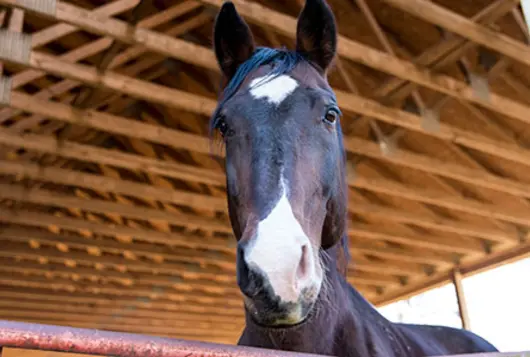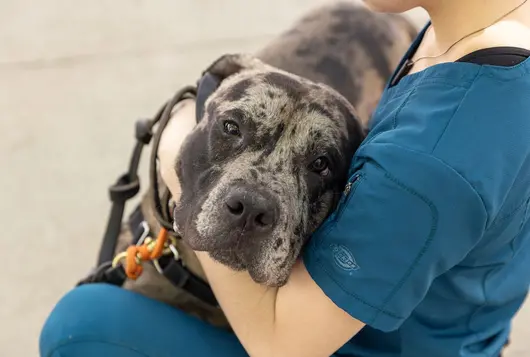The Risks of Monoclonal Antibodies in Animals

Call ASPCA Poison Control at 1-888-426-4435 to speak with one of our experts if you need assistance regarding mAb exposure.
Monoclonal antibody therapies, otherwise known as “mAb,” are a well-established standard of care for many human medical conditions, including cancer, autoimmune conditions, and infectious diseases. Although the veterinary medicine field is just now starting to incorporate them into our medication arsenal, this type of immunotherapy has been around for decades. Significant safety concerns, including the potential for life-threatening anaphylaxis, cytokine storms, and serum sickness, have been identified in humans, but what are the risks to our pets?
First, let’s review the mechanism of action. Monoclonal antibodies are usually part rodent and part target species. The rodent component carries the highly specific antigen-binding fragment while the constant region belonging to the target species serves to activate the immune system against the antigen. The normal polyclonal immune response will result in a diverse array of antibodies to many different receptors and proteins. By cloning cells carrying the highly specific antigen-binding fragment, this ultimately results in a highly concentrated army of antibodies.
What potential risks does this carry? Because these biologic therapies activate the immune system, there is some risk of hypersensitivity reactions, including anaphylaxis. Fortunately, the incidence of these reactions to veterinary mAb products has been very low. The most common signs seen are:
- Mild pain
- Swelling
- Dermal reactions at the injection site.
Mild vomiting, diarrhea, and lethargy are also possible, while scabbing of the head and neck and more severe dermal reactions have rarely been reported.
It is worth noting that the mAbs frunevetmab (Solensia™) and bedinvetmab (Librela™) could be very dangerous to extremely young and in utero animals since they target nerve growth factor. In safety studies, worsening of renal disease was reported for frunevetmab in a small percentage of patients. In safety studies for bedinvetmab, elevated BUN and urinary tract infections were reported in a small percentage of patients.
The ASPCA Poison Control has consulted on a limited number of exposures to these products. The most common signs reported in our records are vomiting, diarrhea, and anorexia.
We have lots more on this subject:




